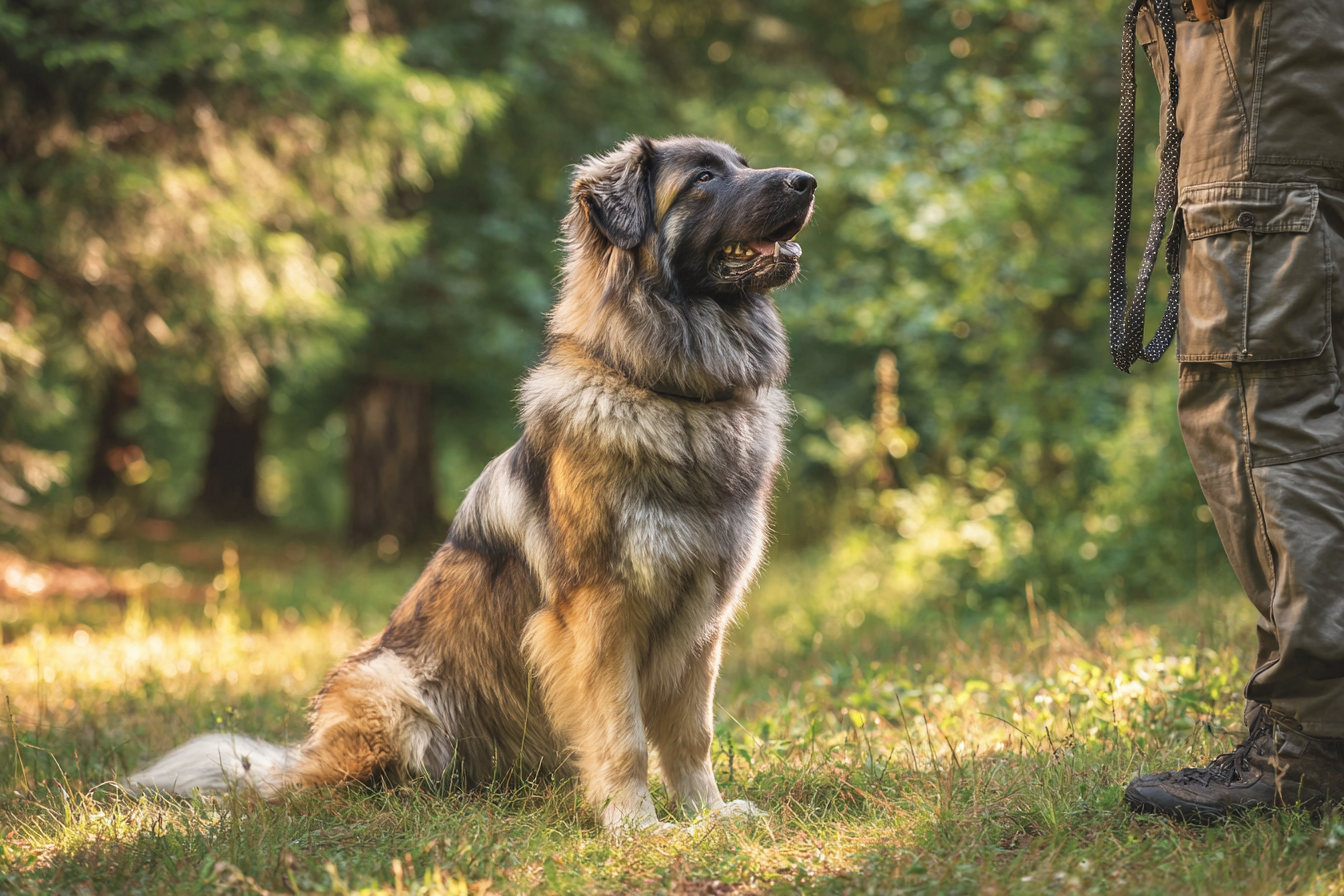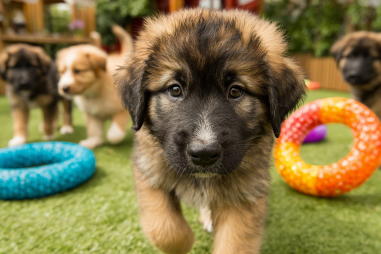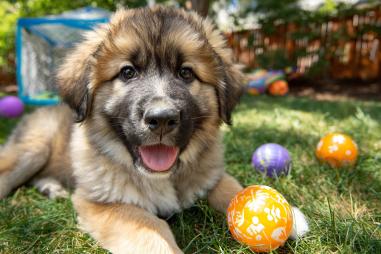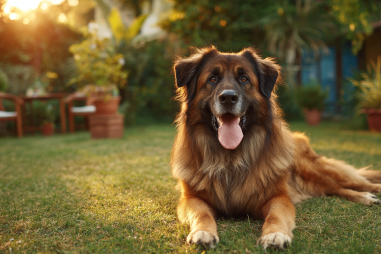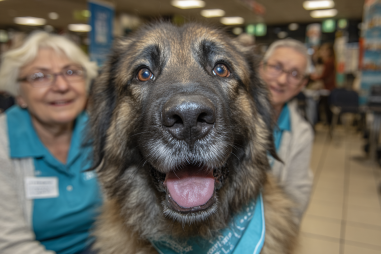Training a Leonberger can be a truly rewarding experience, but it requires understanding their unique traits and needs. These gentle giants are known for their intelligence, loyalty, and calm demeanor, but their sheer size means training must be handled with care and consistency from an early age. With the right approach, you can nurture a well-behaved companion who not only listens attentively but also builds a strong, trusting bond with you. In this article, we will explore effective Leonberger training methods, covering everything from obedience basics to socializing and managing common behavioral challenges.
Understanding the Leonberger Mindset
Leonbergers are confident, intelligent dogs with a calm and gentle nature. Originally bred as working dogs and family companions, they thrive on positive interaction and mental stimulation. One thing to keep in mind is that Leonbergers are sensitive and respond well to encouragement rather than harsh discipline. Their intelligence means they catch on quickly, but their large size can sometimes lead to stubbornness if they feel pushed too hard. Understanding their mindset is key: they want to please, but they need your guidance, patience, and respect.
Since they mature slower than smaller breeds, both mentally and physically, ongoing gentle reinforcement is essential throughout their training process. Their social nature and tendency to bond closely with their families mean that building trust will motivate them to behave well and respond to commands.
Basics of Obedience Training
Starting obedience training early is vital with a Leonberger. Early training sets the foundation for polite behavior and safety. The core commands you’ll want to focus on include sit, stay, come, down, and heel. These commands establish a shared language between you and your dog and are essential for managing such a large breed.
Begin training sessions when your Leonberger is calm but alert. Short, frequent sessions of about 10-15 minutes work best, as they keep your dog’s attention without causing frustration. Use a calm but enthusiastic tone to keep your dog engaged. Consistency, both in the command words and body language, is crucial—always use the same words and hand signals for specific commands.
Leverage your dog’s food motivation or favorite toys as rewards during these sessions. For example, when teaching ‘sit,’ gently raise a treat above their nose to encourage them to lower their rear end as their eyes follow the treat, then praise and reward immediately once they sit. Repeat patiently until your Leonberger performs reliably.
Positive Reinforcement Strategies
Positive reinforcement is the cornerstone of successful Leonberger training. This method encourages good behavior by rewarding it rather than punishing bad behavior. Leonbergers respond best when they understand what behaviors earn them praise, treats, or playtime.
Here are some effective positive reinforcement techniques for your Leonberger:
- Treat Rewards: Use high-value treats that your dog loves for training sessions, especially when introducing new commands or behaviors.
- Verbal Praise: A warm, enthusiastic “Good dog!” can boost your dog’s confidence and reinforce desired actions.
- Play Rewards: Incorporate playtime or a favorite toy as an exciting reward after successful training, helping link enjoyment with good behavior.
- Clicker Training: Using a clicker to mark precise moments when your dog follows a command can improve clarity and speed up learning.
The key is timing—rewards should come immediately after the good behavior so your Leonberger clearly connects the action with the positive consequence.
Housebreaking and Crate Training
Given their size, early housebreaking is essential for a Leonberger to avoid accidents and establish good habits. Consistency, routine, and patience form the backbone of effective house training.
Establish a set schedule for bathroom breaks: first thing in the morning, after meals, play sessions, and before bedtime. Take your Leonberger to the same spot each time to create a consistent cue. When your dog eliminates outside, always reward them immediately with praise or treats. Avoid punishment for accidents; instead, calmly clean them up and reinforce good behavior outside.
Crate training is another powerful tool. For Leonbergers, a properly sized crate becomes a safe haven—a place to rest and feel secure. Introduce the crate gradually by making it inviting (with soft bedding and toys) and never using it as punishment. Start by feeding meals inside the crate and encouraging your dog to enter voluntarily. This helps them associate the crate with comfort and safety.
Crate training also aids in preventing destructive behavior when you can’t supervise your dog directly. Just remember to keep crate sessions reasonable and never leave your Leonberger crated for extended periods, as they thrive on social interaction.
Socialization with People and Other Animals
Proper socialization is critical in Leonberger training to ensure your dog grows up confident and well-adjusted. Exposing your puppy or young dog to a variety of people, animals, environments, and sounds can prevent fear or aggression issues later in life.
Begin socialization early and keep experiences positive. Invite friends over and allow your Leonberger to meet calm dogs under controlled circumstances. Regular visits to dog-friendly parks, pet stores, or safe outdoor spaces will help your dog get comfortable around different people and animals.
When socializing, always watch your dog’s body language—if they appear overwhelmed or fearful, calmly remove them from the situation and try a more gradual approach. Positive reinforcement (treats and praise) during social encounters helps your dog associate new experiences with good feelings.
Handling Common Behavior Challenges
While Leonbergers are generally calm and gentle, some common behavioral challenges may arise. Understanding how to handle these will keep your dog balanced and happy.
- Pulling on the Leash: Due to their strength, a pulling Leonberger can be difficult to control. Use a no-pull harness and teach loose leash walking by stopping whenever your dog pulls, resuming walking only when the leash slackens.
- Jumping Up: Excitement can cause your Leonberger to jump on people. Ignore the jumping, turning away until all paws are on the floor, then reward calm behavior.
- Chewing and Destructive Behavior: Provide plenty of appropriate chew toys and supervise your puppy carefully. Redirect chewing on furniture or belongings to toys and use crate training when unsupervised.
- Separation Anxiety: Gradually accustom your dog to being alone by starting with short absences and rewarding calmness upon your return.
Consistency and patience are essential when correcting these behaviors. Never resort to physical punishment—it can damage your bond and increase anxiety. Instead, reinforce good habits and provide plenty of mental and physical exercise.
Building a Lasting Partnership
Training your Leonberger is an ongoing journey that yields tremendous rewards. With patience, positive reinforcement, and understanding of their unique needs, you create not only a well-behaved dog but also a loyal and loving companion. Keep training sessions fun and engaging, and celebrate your dog’s progress, no matter how small. Through compassionate guidance and consistent practice, your Leonberger will grow into the well-mannered giant you’ve always hoped for—a true gentle guardian and family friend.

